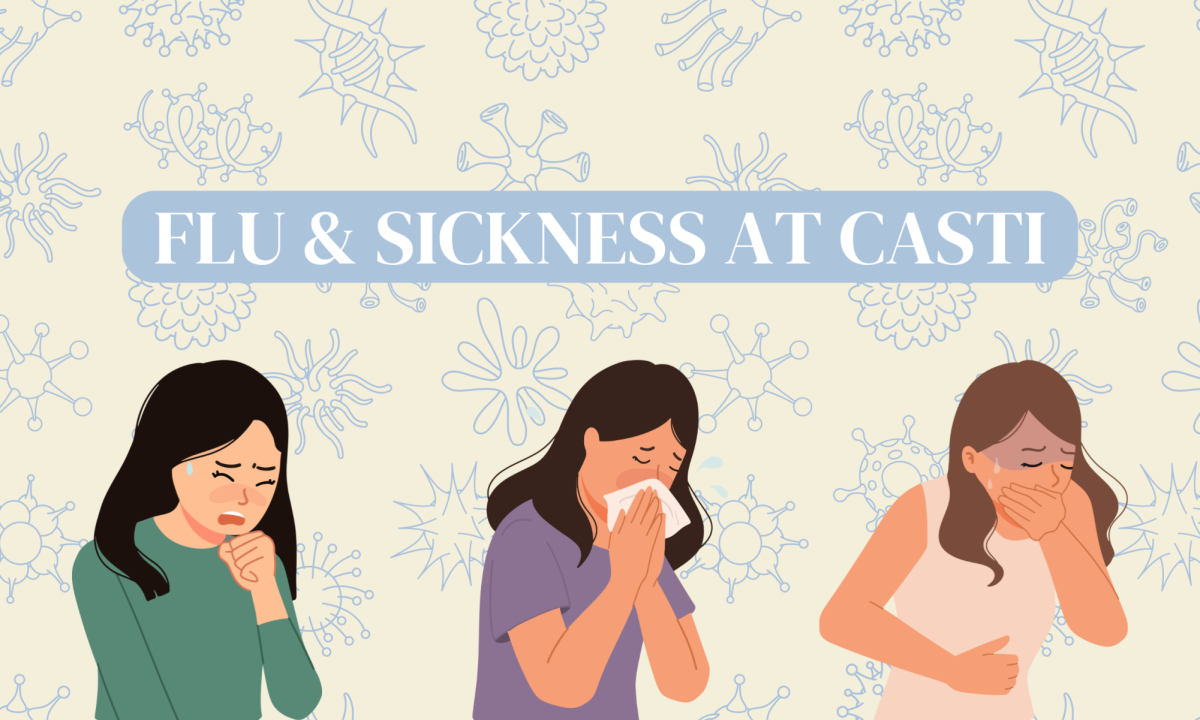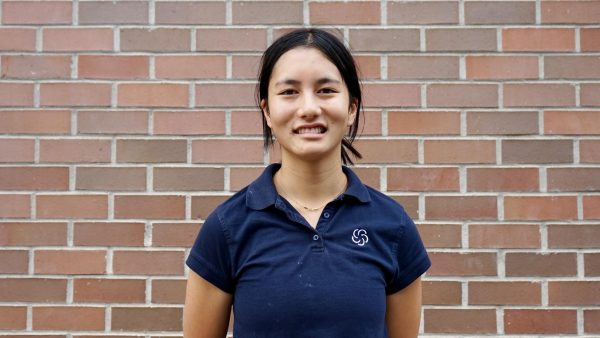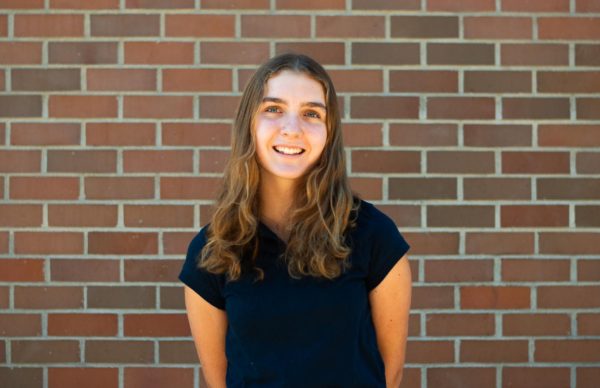This winter, the U.S. has been facing the most intense flu season in at least 15 years. At Castilleja, Athletic Trainer Torie Dawson sent home eight students in January and 11 students in February for undetermined sicknesses. Jessie Surface, Director of Health Services and Safety, said that the week before February break was the most rampant time for illnesses.
As a result, almost the entire basketball team became sick, affecting their practice schedule during the second half of league play. Many students also reported prolonged symptoms such as coughing and nasal drip.
Noor Maraqa ’26 said she was the first person infected on the basketball team. Her initial symptoms included sore throat, congestion, stomachache, headache and other body aches. “That was the determiner for me that it was more than the cold,” Maraqa said. In rapid succession, everyone except Landry Agnich ’26 contracted the flu. Taryn Johnston ’27 was one of the few who tested to determine her respiratory virus. The test confirmed that it was Influenza A.
“Noor had a crippling stomachache, and then when I came into contact with her, then I had an inexplicable crippling stomachache. One day later, I got the flu,” Johnston said. However, Maraqa claimed that it is hard to pinpoint her as the only infector. “If it wouldn’t have been me, I think everyone would have still gotten it because the whole school got it,” Maraqa said. A few weeks after recovering from the flu, Maraqa caught the cold. Overall, she believes her immune system has been weakened by the progressively shortening recovery times between her intervals of sickness.
Naya Sangoram ’25 was infected with the flu twice, once after the semi-formal in February and again during the wave of sickness that struck the basketball team. Her symptoms included congestion and itchy ears. “We were running up and down [the court], and suddenly, I just felt this different sensation. Suddenly, I was just out, and I couldn’t sprint. And then I went home and just laid in my bed until three days later,” Sangoram said.
With members of the team falling in and out of sickness, Agnich said that one day only three people came to practice. Maraqa added how this was poor timing as basketball was entering its second round of league play. “Basketball is a contact sport. There’s no way for us to practice and not be touching each other,” Maraqa said. Canceling practice meant losing valuable time to prepare for tough opponents, but the spread of sickness was inevitable in this environment.
Agnich was the one exception: It was miraculous that she didn’t get sick, especially as her sister (who is also on the team) did. “I was very scared the entire time because every single person for two and a half weeks straight – it would be like ‘oh no someone else got it,’” Agnich said. Agnich did take one precaution that may have played a key role in her immunity: a lot of ginger shots.
Outside of the basketball team, Michaela Miller ’27 said she has bronchitis as a result of contracting the flu. “My nose has been dripping ever since. I’m not congested, but I’m constantly [sniffling],” Miller said. Additionally, she has a dry cough, and her respiratory system is still compromised. “Sometimes when I workout really hard for two and a half hours, I feel a little bit more out of breath,” Miller said.
Miller also tested positive for Influenza A, though she has not confirmed her bronchitis with a doctor due to medical insurance issues. She explained that this is the second time she dealt with bronchitis immediately following a flu infection. Miller also suspects that the key factor of this pattern (along with the flu) is her asthma. So, she has been using her inhaler to help.
Miller believes she got sick from an international convention with 5,000 people in Denver, Colorado. The admission was a nonrefundable $2000; “Some people [still] went with COVID and the flu,” Miller said. According to Miller, they didn’t wear masks.
There are many obligations that keep students from only having to worry about their health, such as school, sports, or events. Unfortunately, as a result, flu complications are lingering. The flu season is staying until May.
Some helpful reminders from Ms. Surface to avoid the spread of respiratory illnesses:
- Stay up to date on vaccines
- Stay home if you’re sick
- Test and treat for COVID-19 and flu if you have symptoms (like fever, cold, cough, sore throat, or loss of taste or smell)
- Consider wearing a mask
- Wash your hands
- Cover your cough or sneeze into your elbow, arm, or disposable tissue and then wash/sanitize your hands




